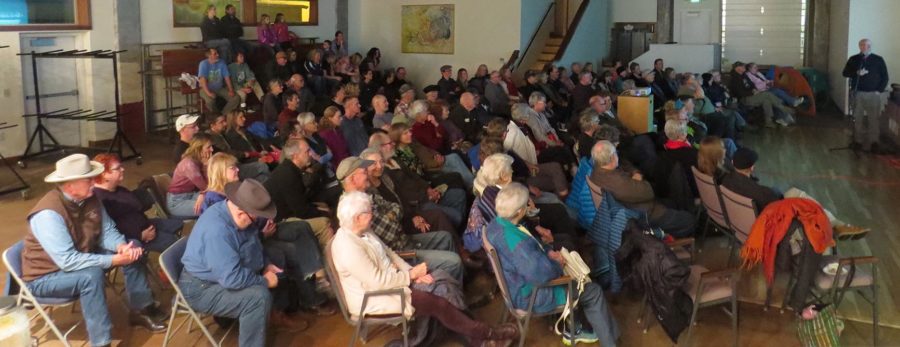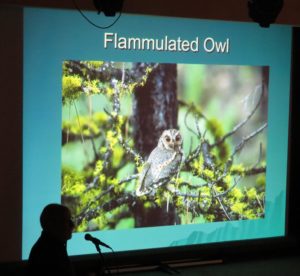The World Needs More Birders

Renowned biologist, birder, and author Dick Cannings brought his vast knowledge of birds to Highland Wonders on Friday, February 6, 2015. In his inspiring presentation, “The World Needs More Birders,” Cannings demonstrated how going out to enjoy and watch birds can also generate valuable information about the abundance and distribution of bird species in our region. Drawing on a long career as a professional biologist, Cannings conveyed anecdotes, stories, and experiences that underscore the need for citizen science programs. Through coordinated efforts, the public can be actively involved in turning bird watching into a collective database of bird breeding, bird behavior, and migration.

Community members were encouraged with the knowledge that anyone can become a birder, and contribute to a better understanding of the future for bird populations in a changing world. Cannings provided examples of chance sightings that have sparked comprehensive mapping projects, which now contribute critical knowledge of unique bird species. This Highland Wonders event also illustrated how the passion of amateur naturalists can catalyze a chain reaction that begins with data collection, which supports the need for studies, which in turn produces the studies needed for habitat protection to be legislated. Amateur birders can provide the legwork, people-power, and on-the-ground observation needed for professional biologists to carry out scientific studies. These studies can only be funded when sufficient data have been collected to indicate that a problem or issue needs to be addressed. While there aren’t enough biologists to collect all of the needed data, local birders can help fill in the gaps, which then helps produce the studies needed for critical habitat to be protected. Cannings also shared puzzling changes in specific bird populations, highlighting mysteries that citizen science might help unravel in the future.

“By developing programs that allow birders to gather scientific data while they are having fun watching birds, we can use the expertise and enthusiasm of the birding community to create large, continental-scale databases that will shape conservation biology in the decades to come,” Cannings says. “We can now combine field observations with cutting-edge web technology to get very detailed information on the numbers, distribution and movements of birds—information that is critical to modern land management decisions. And anyone can get involved!”

Born and raised in the Okanagan Valley of southern British Columbia, Dick Cannings grew up in a family of avid birders. Still residing in the Okanagan, Cannings works as a consulting biologist, teaches field ecology overseas, writes about the natural world, and coordinates many programs for Bird Studies Canada – including Canadian Christmas Bird Counts, the Great Backyard Bird Count, the eBird program, the BC Breeding Bird Atlas and the British Columbia Owl Survey. Birding has been a way of life for the Cannings family, and Dick’s son, Russell, is continuing the family tradition, working as a field biologist and setting a new BC record in 2010 for birds seen in one year.
Please visit OHA’s Citizen Science page for examples of programs that Dick Cannings discussed, including links to share your own observations with the world.